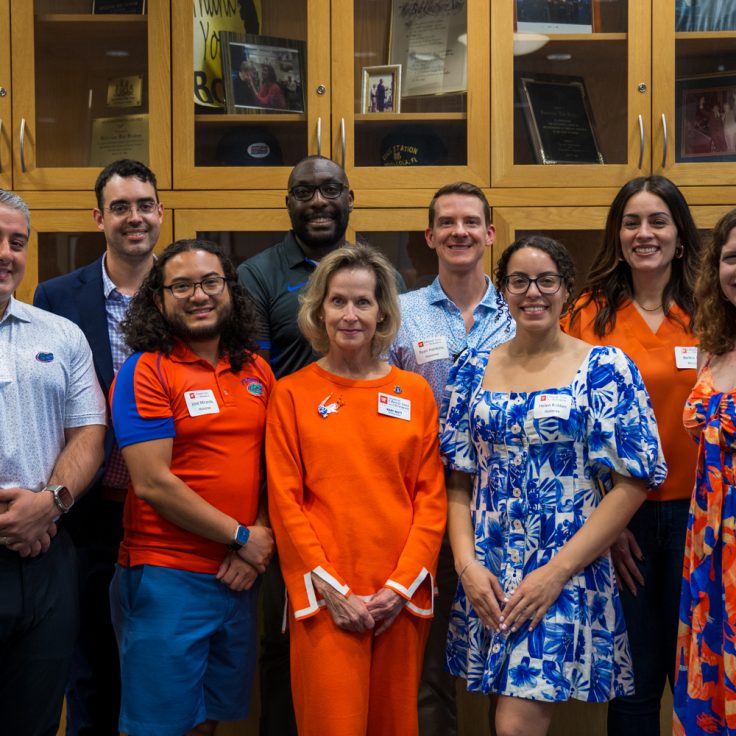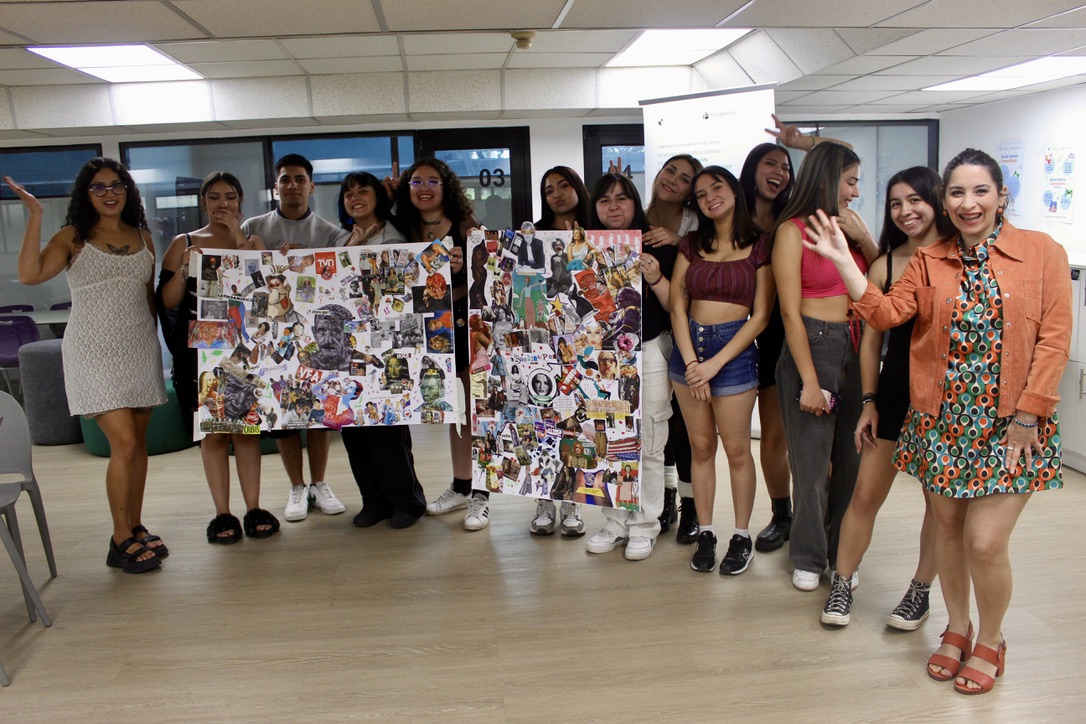
Students display their creativity at a workshop held with undergraduate students at UTEM titled "Dismantling Stereotypes and Becoming a Protagonist."
Associate professor enables dialogue through art and music; receives Fulbright Specialist Grant
Jillian Hernandez, associate professor of gender, sexualities, and women’s studies at the University of Florida, uses art, fashion, and music to enable dialogue that gives students – and the educators who teach them – the tools to understand, express and embrace their individuality.
Supported by a Fulbright Specialist Grant received in 2024, Hernandez just returned from Santiago, Chile after spending two weeks sharing research, hosting interactive learning sessions, and working with higher education administrators at the Universidad Tecnológica Metropolitana (UTEM). Hernandez’s work focuses on the use of creative self-expression as a method for individuals to communicate thoughts, identity, and complex feelings. Honest self-expression requires bravery that many young adults and members of under-represented communities possess but may be hindered from sharing.
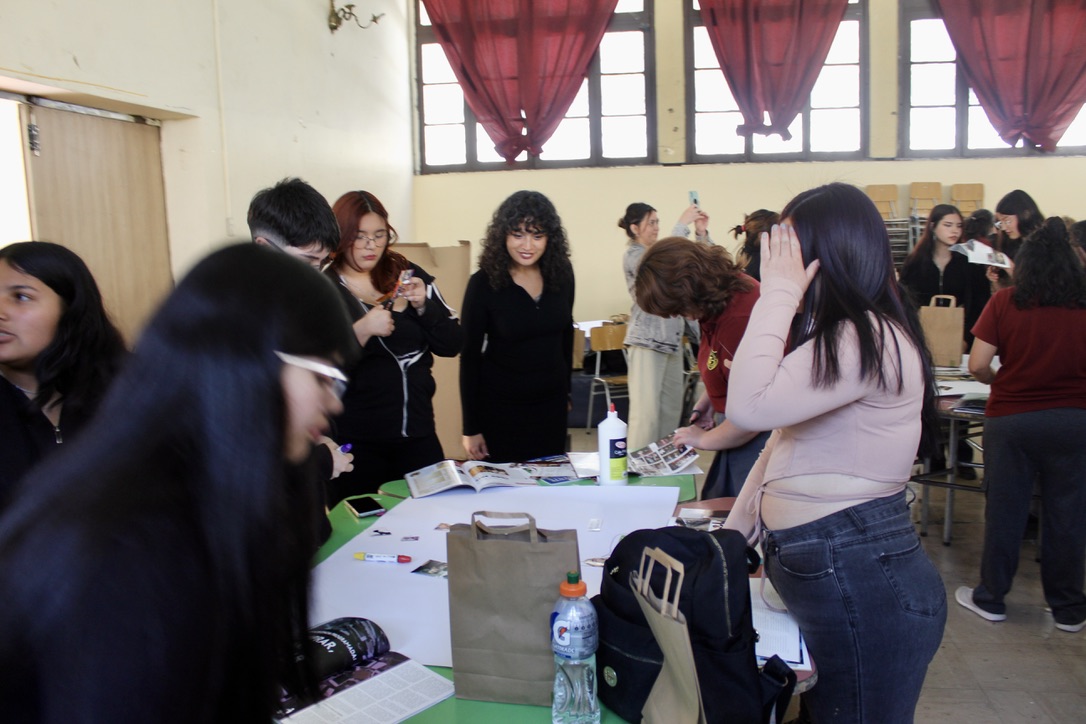
The Fulbright Specialist Grant is awarded to 400 United States citizens annually to share expertise with host institutions abroad. Recipients are selected based on academic and professional achievement, demonstrated leadership in their field, and their potential to foster long-term cooperation between institutions in the U.S. and abroad.
Hernandez said the heart of her work is in expressing culture through creativity. “Not just learning about culture and analyzing culture but creating culture as well. I think that is the thread of all of my work, whether it be community-based or academic work, it is really thinking about the importance of creativity – if you don’t like what you see, you have the potential to make something different,” she said.
In her book “Aesthetics of Excess: The Art and Politics of Black and Latina Embodiment,” (Duke University Press) Hernandez traces how the body practices and art making of Black and Latinx women and girls are intertwined, and how their creative work complicates conventional notions of cultural value and sexual respectability.
While in Santiago, she worked to engage students, faculty, administrators, and staff in discussions about gender equity and the potential development of a gender, sexuality, and women’s studies (GSWS) department. Although UTEM does not yet have a dedicated GSWS department, there is strong interest in establishing one, which the project aimed to support through a series of activities that addressed both academic and practical approaches to gender equity in education.
“I was particularly excited to engage in nuanced conversations around gender and visual culture that went beyond the dichotomies of ‘good’ vs. ‘bad’ representations to focus on the complex and contradictory ways that popular culture impacts ideas around gender,” Hernandez said.
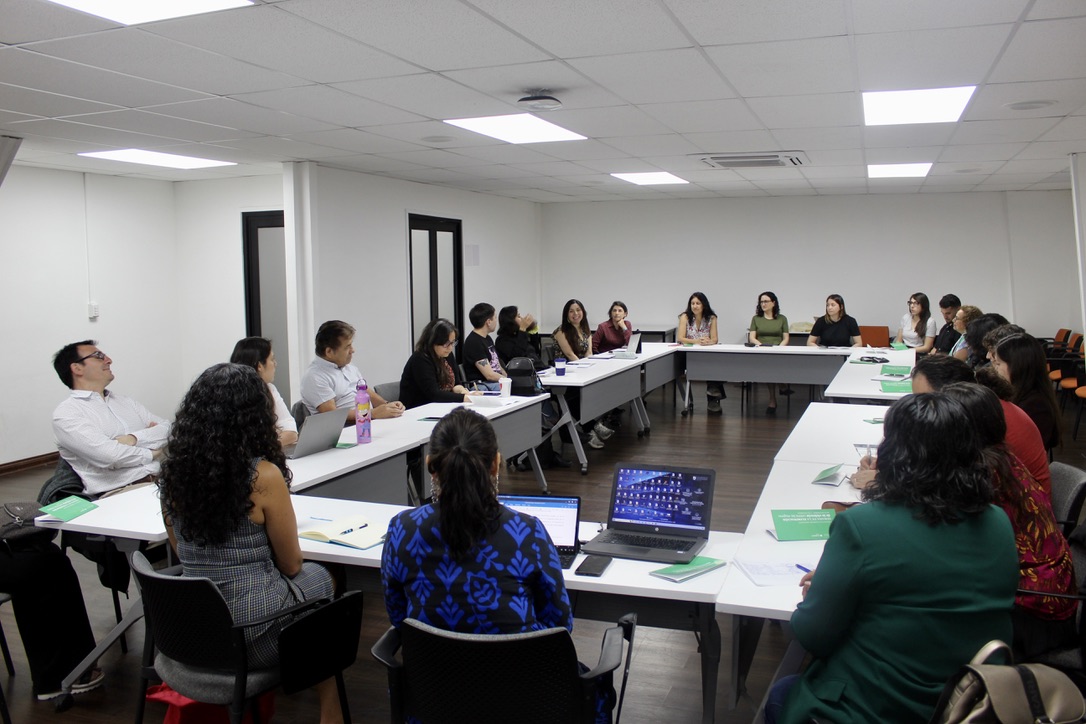
Hernandez shared best practices for building a GSWS program, and discussed challenges and needs of UTEM, including the underrepresentation of women in STEM fields. UTEM is a STEM- heavy institution, but only 10% of students in STEM majors are women. Potential future collaborations between UTEM and UF were also discussed.
In addition to sharing her research and best practices with faculty and administrators, Hernandez also worked directly with the student population and surrounding community.
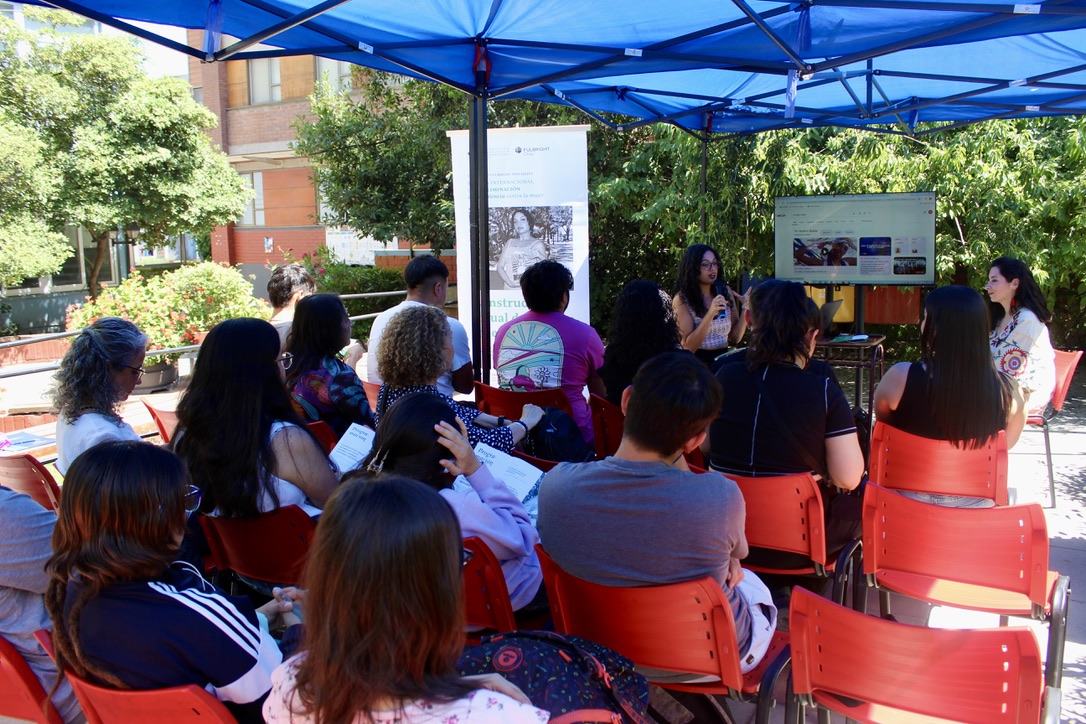
In an open-air talk titled, “From Ivy Queen and Tokischa to Villano Antillano: Reggaetón and Dembow as Expressions of Feminine Power,” Hernandez said, “Students participated in a critical and informal discussion on how these genres of music, that are often considered misogynistic are currently addressing issues of gender equity and providing a forum for the expression of women’s empowerment.”
Hernandez additionally conducted two hands-on workshops during her stay. The first, “Dismantling Stereotypes and Becoming a Protagonist,” presented in collaboration with her host Virginia Benítez Berrios, Ph.D., reviewed the representation of women of color’s racialized sexuality in European art history. The second workshop brought Hernandez to a local all-girls high school.
“The event was attended by over 60 students and was the perfect closing activity for my project. I learned a lot about girlhood, gender, and Chilean popular culture from the students,” she said.
Hernandez said she felt the project led to productive and strategic conversations around the challenges of supporting gender equity in post-secondary settings.
“This is an issue that can become highly politicized and thus public support and resources for such initiatives can be subject to disruption in any nation,” she said.
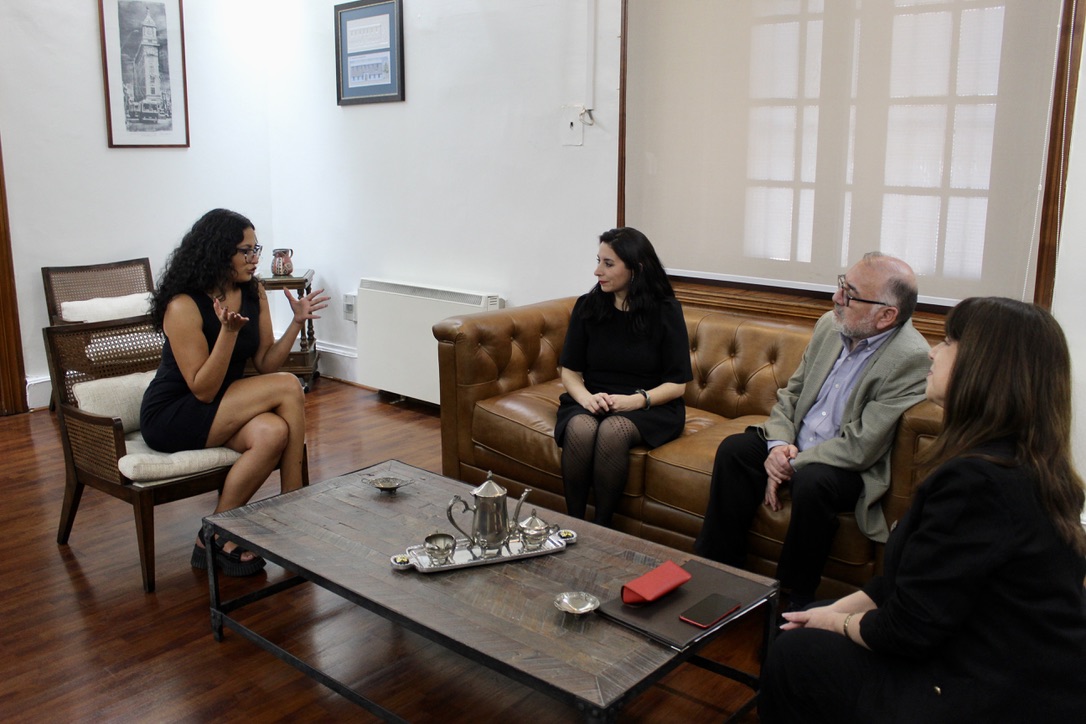
But, according to Hernandez, perhaps the most critical outcome was forming relationships and the exchange of ideas across geographies of difference and understandings of identity.
“I was able to create with faculty, administrators, staff, students, and cultural workers in Chile who share similar interests. I see the potential for many more collaborations ahead!”
Since its establishment in 1946, the Fulbright Program has given more than 400,000 students, scholars, teachers, artists, and scientists the opportunity to study, teach and conduct research, exchange ideas, and contribute to finding solutions to shared international concerns.

